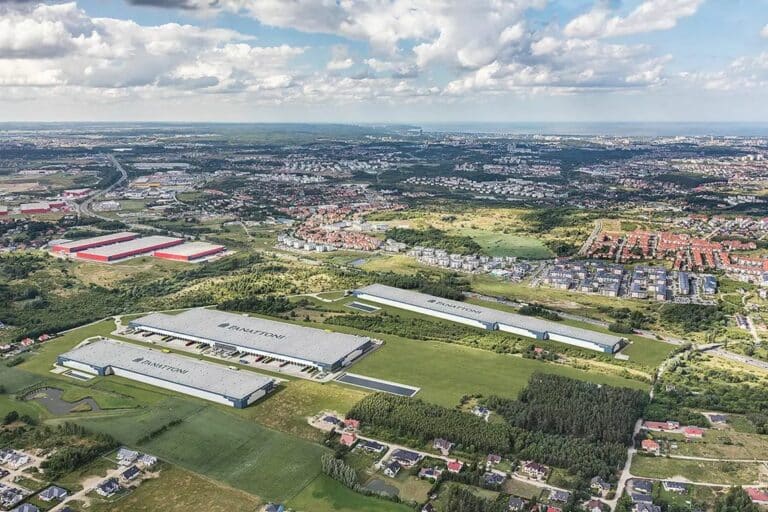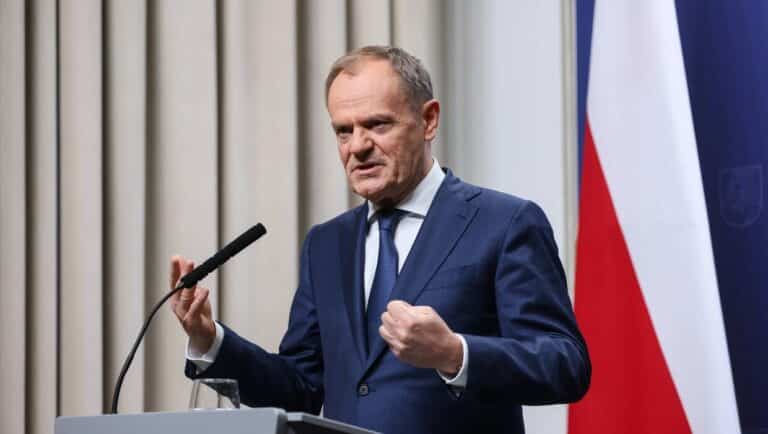Warsaw’s rising Fintech credentials
‘The Fintech Industry in Warsaw,’ a report published by Antal, shows that the capital is one of the important Fintech hubs, mainly thanks to its large talent pool.
Some 45% of Fintech companies in Poland are located in Warsaw and the city is listed ahead of important Fintech centers such as Munich and Milan. Experts predict that Warsaw will achieve a better position in the sector due to its IT driving force.
The “Fintech Industry in Warsaw” report published by Antal Poland evaluated the current sectoral position and future of the capital in providing innovative financial services. According to the report, there has been a marked increase in the number of Fintech companies in Poland with digitalization of the banking sector growing in line with the increasing innovative needs of customers. Poland’s number of well-educated and talented specialists in the IT sector, its geopolitical location, developed financial infrastructure and modern office supply attract the attention of domestic and foreign investors. 188 of the 417 Fintech companies across the country, approximately 45%, are located in Warsaw. Although these companies mainly consist of domestic investors, foreign investors, even sector leaders such as VISA, are also interested in the capital. Warsaw’s fintechs provide services in different innovative areas such as mobile applications for managing personal finances, ticketing, credit and lending platforms, mobile payment systems and internet exchange offices.
“It’s hard to imagine a resident- and tourist-friendly smart city without convenient, secure and easy-to-integrate payments across a variety of solutions provided by technology companies and, above all, supporting a variety of payment methods – so that they can be used by both permanent residents and people who have only come for a short stay. This is especially important after Warsaw was awarded the title of Europe’s Most Attractive Tourist Destination in 2023. Such a distinction always translates into more visitors expecting to be able to use the payment methods they use every day,” said Director of ISV and Business Partnerships Office, eService Paweł Bujarski.
Despite stringent regulations and some funding difficulties in Poland, the capital receives support from EU funds, National Research and Development Center programs and various accelerators. Warsaw ranks 10th in the European Fintech Occupier Index, ahead of cities specialized in the sector, such as Munich and Milan.
There is much support from various accelerators. Institutions such as The FinTech Poland Foundation and the Office of the Polish Financial Supervision Authority (UKNF) provide organizational and financial support, especially to new Fintechs. In addition, the cooperation between the municipality of Warsaw and young Fintechs supports startups while producing innovative solutions to the needs of the city.
“As many as 45% of companies that create innovative IT-based financial services and operate online are based in the capital. Such a large concentration of entities from the fintech industry in Warsaw favors the formation of an innovative ecosystem that integrates technology and finance, creating conducive conditions for the further development of this and other sectors. Many factors make the capital of Poland such a strong business market, as well as the fintech industry. These include favorable macroeconomic indicators, modern infrastructure, business support programs and open-minded universities that prepare specialists at the highest level.” said Mayor of Warsaw Rafał Trzaskowski.
“Warsaw has regularly and dynamically strengthened its position on the business map of Europe and the world for many years. This is evidenced by high rankings of cities friendly to business and technology development. In Central and Eastern Europe, Poland is a leader in foreign investments, including those based on new technologies, and the capital is the beneficiary of a huge part of them.” he added.
On the other hand, from the investors’ perspective, there is more to Warsaw’s preference than accelerating support. The capital’s banking (traditional and innovative), its technology companies and the presence of an expert workforce in every sector create a safe ground for investors. Warsaw’s talent pool of more than 20,000 experienced personnel includes IT, cyber security, finance, data analytics, engineering, business and management experts who work in coordination with each other in the Fintech sector. 20% of the Warsaw workforce consists of university graduates who have moved to the capital and 4% of foreign experts. Warsaw universities predict that 15,000 new sector-related experts will graduate every year to join the labor market. 45% of these new graduates have master’s degrees. Moreover, new graduates gain experience thanks to collaboration between universities and companies.
“Currently, employers in the fintech industry are still experiencing less competition for employees than many other sectors of the economy. Their presence in Warsaw enables them to compete with numerous companies in the financial sector, which is transforming thanks to digitalization. Demand for talent in the fintech industry continues to grow, fuelled by the sector’s growth rate. Notably, most fintech companies are start-ups with up to 10 employees and companies with up to 50 employees, accounting for about 60% of the total industry. The remaining 40% are companies with 50 to 100 employees or more. Thus, competition for talented employees will intensify in the coming years. This trend is confirmed by the results of ‘The Map of Polish Fintech 2023’ report, which shows that only 10% of companies do not plan to increase employment soon. As many as 42% of companies plan to increase their workforce by more than half and 20% want to expand their team by more than 100%,” said Business Unit Director SSC/BPO of Antal Sebastian Sala.
Additionally, even if hybrid or fully remote working systems increase, especially after the pandemic, the report observes that geopolitical location is still important for investors. The priority in choosing a location for investment is the balance between the cost and benefit of the operation. Companies aim to keep quality and convenience at a high level while keeping costs at a lower level. Warsaw stands out with its lower operating costs compared to many Western European cities. Investors in Warsaw have the chance to make innovative services competitive on the international market. In addition, the fact that the capital is the most well-known city in Poland – along with Krakow and Gdansk – increases contact with other business partners. The city’s location offers the opportunity to meet and collaborate with local and international clients.
“We are in a much better position when I talk to friends in London who do the same thing. On the other hand, our specialists are billed in PLN, of course, so it’s a much better value for money. Interestingly, when we check where the developers are from in the biggest cities, i.e. London, Madrid, and Berlin, they are mostly from Poland, largely from Wrocław, Gdańsk, or Kraków. So, in terms of human resources, this sets us apart a lot. Warsaw, too, of course.” said CEO of CleverClaim Denis Bułukow.
On the other hand, some of Warsaw’s challenges are mentioned in the report. Especially for new investors, difficulties are observed in recruiting experts at the management level. People with top-level management expertise in the industry either continue in their current jobs or tend to start their own businesses. Another challenge is that Warsaw’s international visibility is generally limited to Europe. However, foreign investments can help Polish Fintech products reach overseas markets.
The report predicts rapid growth and some challenges for the future of the Fintech sector in Warsaw. The increase in customers’ preference for cashless payment methods will increase digitalization and will also be the main reason for new investments. Also, the demand for buy now, pay later, mobile wallets, and fund transfers is increasing. For this reason, it is estimated that companies will need to invest in stronger automation and artificial intelligence systems. Warsaw has the potential to be an important location in the future of the Fintech sector due to the dynamic use of IT services in the field of finance.
Additionally, financial companies in Warsaw are looking for alternative sources of finance and focusing on the ESG investment model. However, private investments in companies that have been existing in the sector for a while have been decreasing. The new trend is collaboration between these companies and younger companies or start-ups.
“Growing investor interest in the ESG (Environmental, Social, Governance) investment model reflects a pattern of responsible investment, in which the image of corporations based on compliance with environmental and social standards and good governance is shaped. The global drive for sustainable development fuels these trends, and in Warsaw – the capital of business and finance – they are gaining momentum, creating an attractive field for investment, both by established financial institutions and dynamic start-ups. In the context of Warsaw’s financial sector ecosystem, fintech innovation is also taking an unusual shape. Particularly striking are versatile solutions, such as revolutionary mobile payment services, advanced KYC/AML models, and the use of blockchain to build innovative financial products, such as Nomad Fulcrum. These technology-focused trends are setting the course for the future, shaping Warsaw as a renowned center for financial innovation.” said Solutions Architect & Operations Director of Nomad Fulcrum Paweł Łaskarzewski.
The ‘Fintech Industry in Warsaw’ was carried out by qualitative analysis of 10 standardized interviews with representatives of fintech companies, department directors and C-level from the financial/fintech industry doing business in or outside Warsaw, and desk research. The survey was supplemented by 20 expert comments from people involved in the fintech sector.







